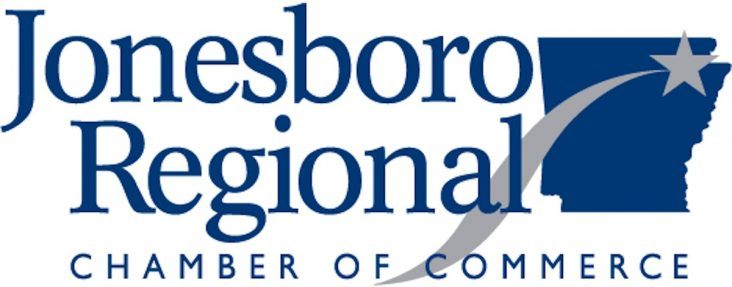Jonesboro chamber to deploy new tactics in 2017, push to expand job and wage growth
by November 1, 2016 12:10 pm 208 views

Educated workforce shortages will become a problem across the country during the next few years, and the Jonesboro Regional Chamber of Commerce is set to tackle this problem in 2017.
President Mark Young told Talk Business & Politics that chamber officials will unveil a plan to target and educate local high school students interested in information technology sector jobs.
“We’re really excited … this will provide students with a clear career pathway into IT,” Young said. “It will give students an understanding of the jobs and opportunities that are available to them.”
Communities across the country have experienced a major decline in educated and properly trained workers in recent years, and the problem is projected to get much worse, Young said. The chamber hopes to send local IT professionals into area school systems to give students a glimpse into what credentials and education they’ll need to work in this expanding field.
Income potential and job requirements will be discussed, he said. It will fall in line with Gov. Asa Hutchinson’s computer coding initiative in the public school system, he said.
An educated workforce is the hallmark of a successful community in the 21st Century, and micro targeting and setting these students on the pathway to success early is critical, Young said. Details about how this plan will work are still in the development phase, but it should be implemented soon, he added.
The IT project is part of a five-year strategic plan initiated by JRCC in 2016 to broaden the jobs base in Northeast Arkansas, increase wage growth, and to target key job creator sectors. Those sectors are agriculture business, healthcare, logistics, manufacturing, and professional services. This approach worked a decade ago when the city was able to lure food processing plants.
Chamber officials will launch a new website in January to provide prospective job creators with information about Jonesboro, and the benefits of locating a business there. Jonesboro’s industrial electricity, water, and sewer rates will be laid out. Buildings, land, and key infrastructure details will also be available on the site. Marketing tools and other useful information will also be accessible.
“We’re in the process of developing this important tool,” he said.
ECONOMIC MEASURES
Jonesboro’s jobless rate stood at 3.1% in August, eight-tenths of a point drop from January, according to the U.S. Department of Labor. The rate is excellent, Young said, but his organization analyzes the numbers even deeper. During the same period, the city’s civilian workforce has expanded to 36,814 workers, an increase of about 3.4%. The civilian workforce measures those employed and those seeking a job. If the number rises while the unemployment rate falls, it’s a strong indicator more people in a community have or are attempting to reenter the workforce, he said.
Three local industries announced employment expansions this year that almost certainly strengthened jobs numbers. FMH Conveyors opted to locate its headquarters in Jonesboro. A $12.5 million expansion project is nearly complete, and at least 110 new workers will have jobs inside the 195,000-square-foot facility, with total employment rising to 200 workers.
Hytrol Conveyors completed an expansion and now employs more than 1,000 workers. Company official told Talk Business & Politics in September the company still needs to hire dozens of welders and machinists, and the problem will persist into 2017. The jobs require certifications and skills and pay between $40,000 to $50,000 per year with benefits.
Frito Lay asked the city of Jonesboro to pass a resolution to allow the company to seek up to $150 million in taxable industrial development bonds to expand the plant located in the city’s industrial park. Details of this latest expansion have been made public, but at least 30 jobs could be added, according to the company.
About $122 million worth of building permits were approved by the city through July – a 43% increase from the previous year, according to an analysis by Talk Business & Politics. It’s a 33% increase from the same time period in 2014, and a 50% increase from 2013, according to the city.
Jonesboro has collected about $14.482 million sales and use tax receipts through October, a 5% increase from 2015. City sales and use taxes are almost $500,000 more than budget expectations, a 3.5% gain. Sales tax collections surges indicate consumers feel confident to spend money, another good sign, Young said.
QUALITY OF LIFE PROMOTION
The city does have economic troubles to tackle, Young said. The median income in the metro is $41,000, about 37% lower than the national average. Better educated workers are able to command higher salaries and perform higher paying jobs, Young said. Workforce viability is a key consideration when a company decides to locate or expand, Young said. More available jobs equates to a more competitive market, he said.
In the near future a plan to improve quality of life factors in the Jonesboro area will be formulated. Recreational, cultural, and other opportunities are important to companies seeking to move or expand, he said. It will be a critical component in the strategic plan in 2017, he said.
“We have a lot of advantages in Jonesboro … it’s our job to move forward and promote jobs and earnings growth,” he said.
